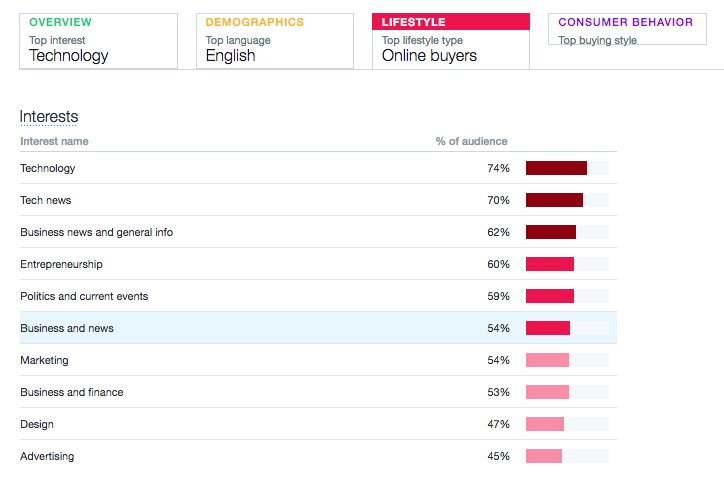Why You Need to Own Your Brand on Social Media
August 23, 2017 at 4:35 PM

The Chicago area is known for a great many things. Great food. Midwestern friendliness. The stunning skyline and picturesque downtown river. The lake! Crippling winters.
Due to that lattermost attribute, residents of Chicagoland really know how to capitalize on sunny summer weather. As soon as the ice thaws, shorts are donned and patios opened. I tend to make the most of enjoyable weather by going on a lot of lunchtime walks around Evanston, where our office is based.
During one such walk I stumbled across a trendy boutique with racks upon racks of items I loved. One dress in particular caught my eye but I didn't have the time to try it on. Being a consumer in 2017, I made a mental note of the brand name and Googled it on my walk back to find pictures of it on a person. No luck. I searched for the store instead, thinking they may post their inventory online or share photos of their intakes on social media.
Imagine my surprise when I discovered that not only did this well-stocked shop that seemed tailormade for me, a Millennial woman, not have a website, but they also didn't have a Facebook Page. Worse, they didn't even have Instagram.
Although there are many businesses without an online presence, it's increasingly rare and, in some cases, downright disappointing. Besides the lack of convenience, in a consumer experience like mine it's a lost opportunity to build a relationship with a local store with interesting items whose target audience is just like me.
I'm not alone in feeling this way. A 2017 survey by Clutch found that 71% of small business owners have a website. Of those who didn't, 92% are planning to have a website by the end of 2018. Of those not planning to have a website, 31% cited their social media presence as the reason they choose not to have a website.
What I find intriguing is that while most business owners will agree that not having a website is a risky decision in today's marketplace, there are still a surprising number who support having a website but remain steadfastly reluctant to create a business presence on social media.
Considering the benefits I've seen firsthand as a professional marketer (more recently with client marketing but also in my years working in-house) and as a consumer on social media, I want to share some insights into why it's important to own your brand's presence on social media.
What Are Your Customers' Expectations?
A global PwC survey found that 78% of retail consumers who responded were influenced by social media in their shopping choices last year. Of the respondents who interacted on social media with a favorite brand, 64% said that interaction had led them to respect or value the brand more.
78% of retail consumers say social media influenced their shopping choices last year." [Tweet this!]
Of course, influence and relationship-building is important, but what about sales? A Marketing Week study reports that nearly one-third of online shoppers report that they are using social channels to browse for new items to buy, and more than half of consumers who follow brands on social media report that they do so in order to view their products. Consumers want to see new products when they launch, and to get ideas for what to buy when they go shopping next.
Perhaps you're not a B2C company and you're thinking that this is all well and good for that retail shop, but social media isn't quite so important for you. Well in today's connected culture, expectations for businesses on social media extends to B2B as well.
In fact, the International Data Corporation reports that 55% of B2B buyers search for information on social media. And purchasing decisions? As many as 84% of C-level executives and vice presidents say that they have used social media to make their purchasing decisions.
Even if not explicitly searching for information about your company, having a presence on Facebook permits you the opportunity to put your brand in front of prospects. With 2 billion active users, Facebook has huge potential for any brand. Additionally, the mindsets of users on the social platform has shifted to expand beyond personal communication. HubSpot reports that 74% of people say they use Facebook for professional purposes.
If your business isn't connected on social media, but your competitors are, what business might you be missing?
A New Industry Standard
To meet customers�or clients�where they are, marketers everywhere have started to shift their focus to social media and other inbound marketing methods.
In the most recent State of Inbound Marketing Report, which surveys thousands of professional marketers globally, HubSpot asked "Which source provides the highest quality leads for your sales team?" and found that 59% of marketers reported that inbound marketing generated their best leads.

(Source: State of Inbound 2017)
Having an active presence on social media channels is an easy way to amp up your inbound marketing. Your profiles will provide details about your company and a link back to your website. Your posts can help establish you as an industry thought leader through the copy and curated content you share, and posts can serve as a distribution channel for the content your company is creating�from blog articles to white papers and more.
In addition to boosting your brand awareness and content marketing, having a social presence gives your customers another way to access your customer service. Although this may seem like a downside, it's an expectation of today's consumers and you should consider it an opportunity to delight your customers as well as increase referrals and word of mouth marketing through their great experiences with your company.
Being accessible and providing prompt, helpful, and polite responses goes a long way in building a base of brand evangelists. Even before they become evangelists, though, your social media interactions will help to boost your relationships.
MarTech Today predicts that social media management platforms, such as Hootsuite, are evolving into relationship building platforms in recognition of the importance of social media for brands to connect with their audiences and build up customer experiences.
Keep in mind, however, that the relationships you cultivate on social media can extend beyond customers and potential customers. It can be an opportunity to find new freelancers, interact with influencers who could help promote your brand, or to discover potential collaborative partners for future projects.
Insights You Can Act On
The best thing about being connected to your audience on social media is, well, being connected to your audience.
Social media platforms can provide your company with invaluable information about your audience that would be costly to research otherwise.
By having a Twitter account and sharing content on the platform that is relevant to our clients and prospective clients, NeigerDesign is able to reach different segments of our audience and see what resonates with them, but also to access analytics provided by Twitter that help us to better understand the segments in the first place.

The same is true for other platforms as well, and the insights are even more robust if you're using a social media management tool that provides additional analytics�such as HubSpot, which integrates social media with website traffic (among its many other features and tools) to see all your touchpoints with leads as you nurture them into customers.
These insights, as well as monitoring engagement with our posts and seeing what others are posting, helps to inform where we should focus our efforts in content creation. Sometimes it even sparks a great content idea!
Speaking of new content, why not use social media as a sounding board of sorts to gauge what interest there may be in potential topics for content or campaigns before you invest in them? See what your audience responds most positively to, and consider using social media to ask them questions.
After all, Google awards more traffic to webpages that contains high-quality, helpful information that addresses questions and issues that your audience has. By feeling out what questions people have about your products or industry, you can create content that is more specific to their needs and which will in turn reach even more people.
When you add up all of the potential benefits of being on social media, business owners should be asking themselves "why not?" (and I think you can see why I was so surprised to come across a store that wasn't).
Comments
Questions or comments? Join the conversation!